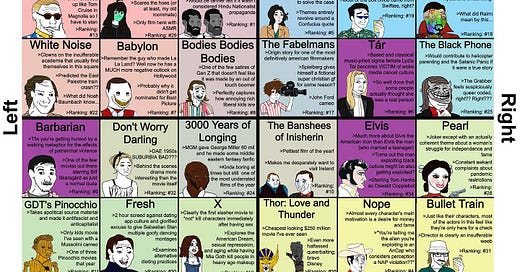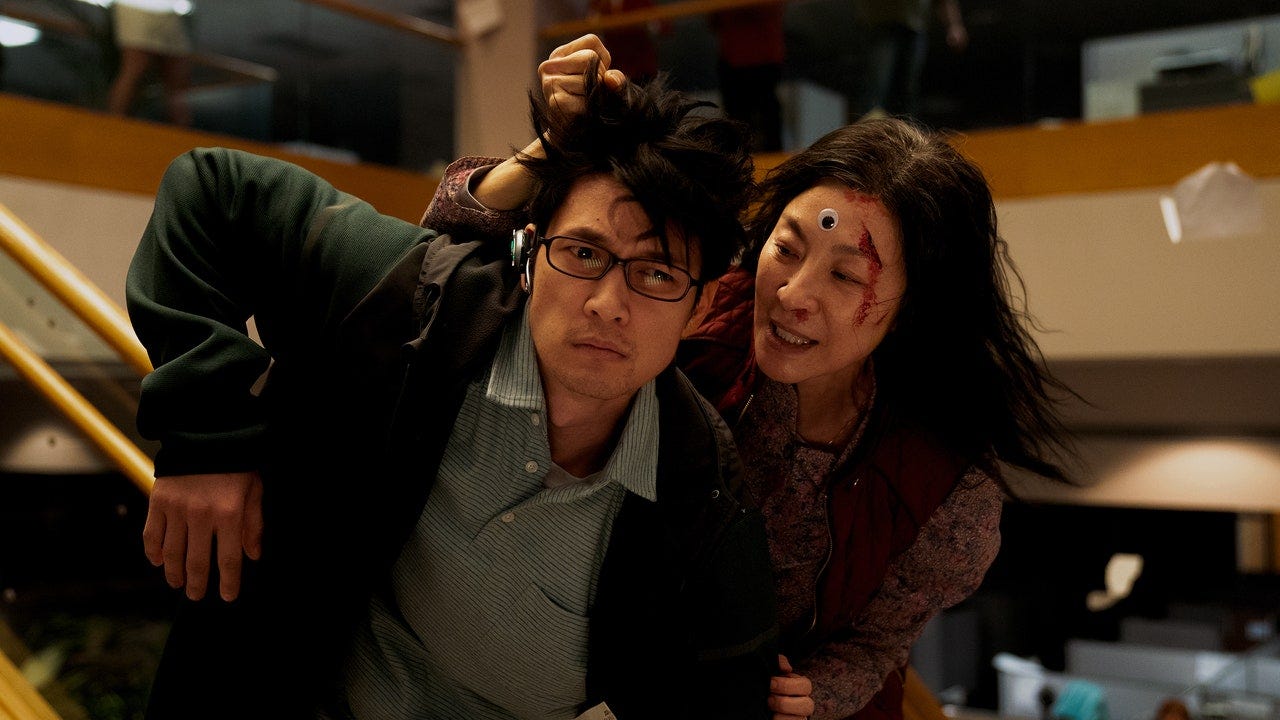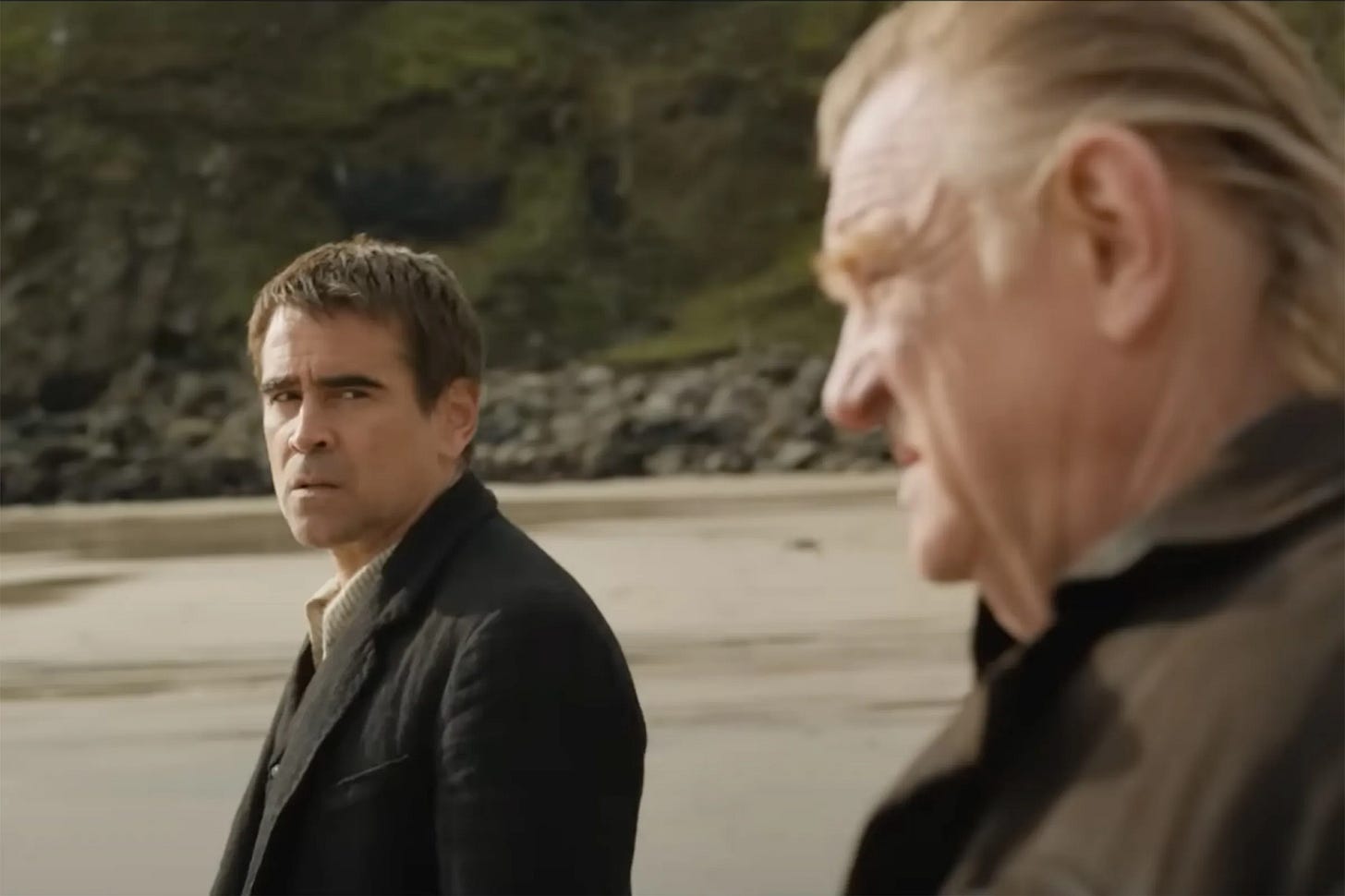The 95th Academy Award nominees for Best Picture Ranked
(based on how discordantly online these are).
The Academy Awards aren’t as popular as they used to be. How should The Academy restore it back to its full glory? I have no idea because to paraphrase from Ned Flander’s beatnik dad, they’ve tried everything and they’re all out of ideas. Or at least, they have one more. The Oscars will be held next week, and it would be the first of its kind to have an emergency crew. After The Slap heard across the world, the ceremony is going to take measures so that the proceedings remain professional and formal in its history, like relegating an emergency crew.
But if recent ceremonies have anything to reveal, it’s that making a mistake or a flub is part of its charm. It’s part of going against the conventions that loads of people always bemoan about the Oscars, whether or not it’s intentional. La La Land not really winning Best Picture or Will Smith making a complete fool out of himself shows not a matter of institutions failing, but as much as it is a faulty attempt to reflect the shifts of the industry, so long as it is consistent with its mission of honouring the best of film.
Even if the Oscars aren’t as popular, the internet plays a massive aspect in its identity, and it also drives modern film culture nowadays. For a while, I have been fascinated by how people talk about movies. The reason why the medium remains relevant, no matter how many people say it isn’t, in comparison to music, TV and video games, is because there is still creative juice in its creators and their creations. For all of its flaws, the Oscars are meant to be a gracious sendoff to awards season and are still competent at it. And the way we talk about how shitty some nominees were is still consistent with the way we talked about the Oscars then.
So what does the array of this year’s Best Picture nominees say about the direction that the movies are going? For one, the category has ten listed films, the second time in a row, considering the Academy modified the rules for potential nominees, being voted on preferential voting, which often brings an average array of 8-9 films. But it’s a very interesting bunch. There’s only one streaming-exclusive film (All Quiet on the Western Front), but there are three box-office hits (two that grossed over a billion dollars, without adjusting for inflation, or four, if you want to include the word of mouth affecting Everything Everywhere All At Once), whereas everything unusually flopped. But as usual, there’s only one film in another language.
Some of them take on topical, but heavier themes, which is why I’m ranking these films, based on how closely engaged it is to the Internet and what kind of discourse it inspires on social media, from Twitter to Letterboxd to Reddit (from terminally online, meaning intensely attached, to not, meaning not so much). Much of which is very much through speculation and anecdotes. This isn’t to say that online discourse does have a large and direct influence on how the Academy Votes. We have anonymous voter accounts that will more or less tell us about their choices. But it definitely shows what sort of trends the Academy would respond to.
Everything Everywhere All At Once
My Take: I watched this film twice and I am not a fan. While the lead performances are the film’s greatest assets, I don’t think it reaches the large depths of the many themes - generational trauma, immigrant life and being in colossal debt - that it sets up. Calum Marsh puts it best. “It’s like 20% lunacy to 80% mawkish when it should be the opposite.” I think it brings the worst elements of mass media altogether: the shallow expansionism of the Russo Brothers (who are the film’s producers) combined with the emotional irreverence of Justin Roiland and Dan Harmon, but without any of its complexity.
What kind of discourse have we seen so far? Much like its title. It’s pretty much weaved into the emotional tangling of migrant generational trauma, except that it’s only seen by Gen Z, forcing their first-generation parents to try and understand (read, validate) them. And how much those people are insufferable.
What kind of discourse could we see? If this movie doesn’t win big (and I think it will in the Big categories), then we can blame its loss on the boomers at the Academy.
Who’s it for? Emotionally stunted zoomers and millennials on Tiktok blaming much of their current woes on neoliberalism and their parents holding so much of their wealth.
How online is it? Terminally.
Tar
My Take: It’s a bloody masterpiece.
What kind of discourse have we seen so far? How it’s the best film to tackle cancel culture. Is Lydia Tar real? So far, a lot of people really liked it, from the gays to the conservatives who have only seen one scene and shared that footage on Twitter.
What kind of discourse could we see? I guess we could add Lydia Tar to the pantheon of great American sigma males (think Tony Soprano, Walter White and Daniel Plainview). And if Cate Blanchett didn’t win, then we will pretend it was not her being nominated.
Who’s it for? Internet Debate bros.
How online is it? Extremely.
Women Talking
My Take: 127 minutes of a group of Mennonite women talking about their problems and leaving their own land to... reclaim it from the men? And it’s shot in this ugly colour grading? Hard pass.
What kind of discourse have we seen so far? That it’s a parable of what it’s like being a woman during the #MeToo era. Why was this even nominated for Best Picture? Why wasn’t Sarah Polley nominated for Best Director?
What kind of discourse could we see? Can’t this be a movie more than what its title suggests?
Who’s it for? Girlboss women who listen to NPR and read Jezebel while they are on the go to get their morning bagel.
How online is it? Extremely
Top Gun Maverick
My Take: Plane go meeeeeeeeowww.
What kind of discourse have we seen so far? Top Gun Maverick is not woke, therefore if you get woke, you go broke? The military is still involved? It stood up to China. Somehow it made more money than it was supposed to.
What kind of discourse could we see? If it actually pulled an upset, it would probably be the best kind, because it’s a really good movie, and it’s the kind of film that Hollywood wants to validate itself as a commercially relevant entity. It will also validate dads everywhere. And Tom Cruise is being kinda insane again.
Who’s it for? Boomers who grew up with Top Gun, not somehow had their cable TV stuck on Fox News.
How online is it? Too
Triangle of Sadness
What kind of discourse have we seen so far? That it’s not the best Eat the Rich movie, and somehow this is nominated for Best Picture? Dolly Leon should get more roles after being snubbed. The Margaret Thatcher quote generator vs the Marxist quote generator is probably overkill.
What kind of discourse could we see? If anything, I hope that Charlbi Dean gets some attention, because this was her final film before her premature death. She was really good at this and had some good timing.
Who’s it for? Anyone who has seen Glass Onion, The White Lotus, and The Menu thinking “give me the afters.”
How online is it? Too
The Banshees of Inishirin
My Take: The aftermath of one of the worst periods of my life almost resembles the plot of The Banshees of Inishirin (just without the finger-cutting of course). The severing of friendships is illustrated really well by Martin McDonaugh, given the emotions being repressed by Colm (Brendan Gleeson) and Padraic (Colin Farrell) and the historical circumstances within the backdrop that causes him to justify it. Incredibly original, even if the visual flair does demand a bit more.
What kind of discourse have we seen so far? What about muh version of the Irish Civil War? Is this going to be like the possible National Divorce that some nutjob on the Internet keeps talking about?
What kind of discourse could we see? Extended personal essays of how I had a moment much like The Banshees of Inishirin (see above).
Who’s it for? See above.
How online is it? Very.
Avatar: The Way of Water
What kind of discourse have we seen so far? Why have we not claimed that this franchise is not memorable? Memes to push back on the notion that it’s culturally insignificant. James Cameron claimed that testosterone is pretty bad. Is the environmentalism here (kinda) good? Is this less colonialist than the last one?
What kind of discourse could we see? If it wins a lot of Oscars, particularly Best Picture, I hope I can shove that “culturally insignificant” opinion right up their detractors’ behind. If it doesn’t, I hope they can say it out loud while sniffing their own flatulence.
Who’s it for? Normies who love shiny movies.
How online is it? Very.
Elvis
My Take: This is almost passable. Austin Butler gives the performance of a lifetime as The King, and Baz Luhrmann not just doubles down on tropes related to the music biopic but also twists it into a fever dream that could only be possible in Elvis’s original head, during his last days. I don’t think it’s pretty cohesive, which is par for the course going into a Luhrmann film. Tom Hanks is also part of the problem, but then again, this is from Parker’s own POV that’s predominant, because Elvis is a product, borrowing from the African American blues, and commercialized for one person’s ego.
What kind of discourse have we seen so far? Whether it’s still a good music biopic, in a post-Walk Hard age. Elvis might still be the devil, agreed not just by the conservatives at the time, but the progressives who think he stole from African-Americans. Why did Doja Cat remix Elvis? Such sacrilege.
What kind of discourse could we see? Austin Butler finally won Best Actor and spoke in his normal voice, freed from chains by his character’s voice. Can this win an Oscar and a Razzie at the same time?
Who’s it for? Facebook boomers whose media diet consist of Sky News Australia.
How online is it? Very.
The Fabelmans
My Take: As much as I really liked this movie, I prefer his earlier movies where Spielberg processed the divorce of his parents in the same way that The Fabelmans does. Michelle Williams brings in her most outlandish performance, but is appropriate for the film’s thesis and looks great doing it, along with the rest of the cast that includes Paul Dano and Seth Rogen. More importantly, the reason why I really liked this movie, is because it’s about doing the things that make you happy, but also as a means to vent about things you remain confused about.
What kind of discourse have we seen so far? Is this minor or major Spielberg?
What kind of discourse could we see? Seth Rogen wants less criticism of his movies because it hurts his feelings. Thankfully, he’s pretty good here.
Who’s it for? Completionists on Film and Letterboxd Twitter.
How online is it? Not
All Quiet on the Western Front
My take: All Quiet On The Western Front is an adaptation of the 1929 novel. The war sequences are brutal, and it has the aesthetic to point out that these events are beautiful in their own way. But it doesn’t really have a lot of emotional souls. This film is about “how war is bad” giving it little for it to say about its source or its characters. This somehow makes the movie more disposable, beyond its Netflix distribution, which is a surefire way to make it a victim of its brutal recommendation algorithm.
What kind of discourse have we seen so far?

What kind of discourse could we see? Given its sweep at the BAFTAs, All Quiet on the Western Front could pull a massive upset winning Best Picture, is it going to be one of the most mediocre winners?
Who’s it for? One Perfect Shot Twitter accounts and r/movies.
How online is it? Not














